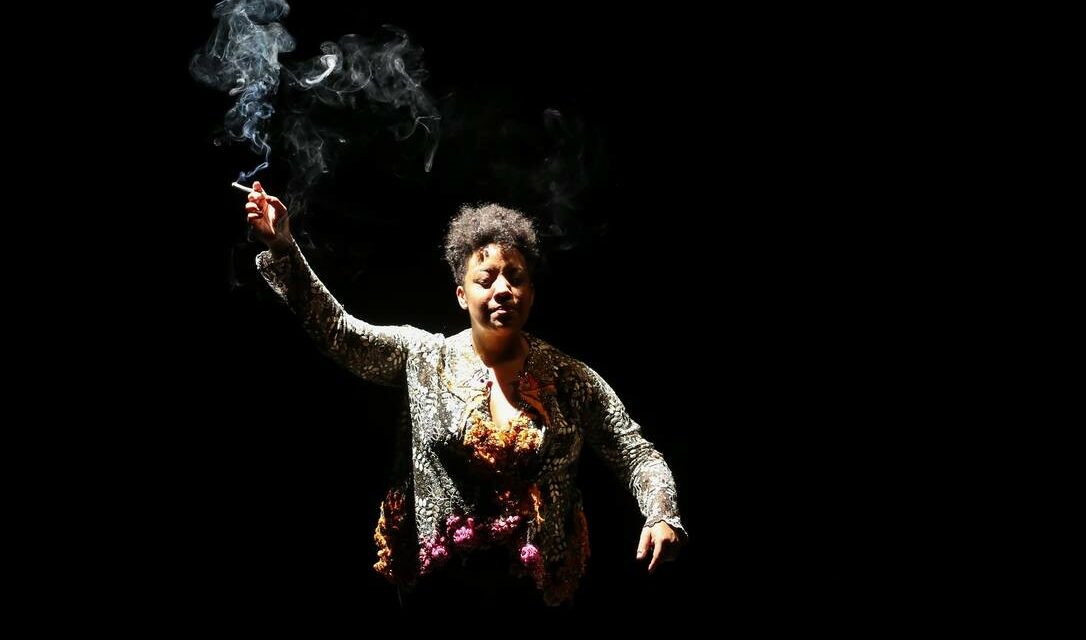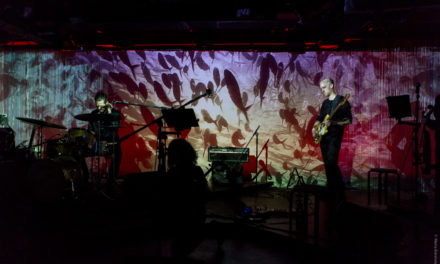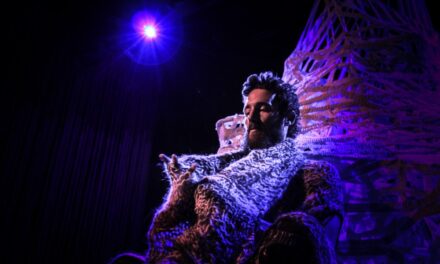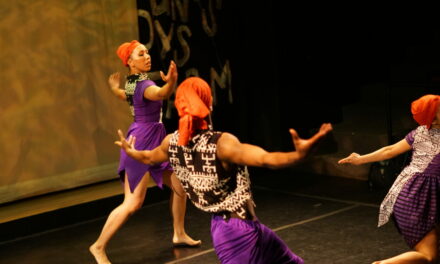FITEI – International Festival of Iberian Expression Theater, taking place in Porto, Portugal, from May 8th to 25th has gathered a remarkable ensemble of Brazilian artists. The program dedicated to Brazil focuses on performances compromised with continuous theatrical research, most of them accomplished by groups or artists committed to collective creation. They are: Preto (Black), conducted by the director of companhia brasileira de teatro (Curitiba, PR); Tchekhov é um cogumelo (Tchekhov is a Mushroom) by André Guerreiro Lopes and Cia. Lusco-Fusco (São Paulo, SP); Há mais futuro que passado – um documentário de ficção (There Is More Future Than Past – A Docuficton Play) directed by Daniele Avila Small from Complexo Duplo (Rio de Janeiro, RJ), Odisseia (Odyssey) – a new performance by Leonardo Moreira, created with the actors Cia. Hiato (São Paulo, SP); Democracia (Democracy) by Felipe Hirsch, who has directed Sutil Cia (Curitiba, PR) for many years, this time working with actors from Chile; Vaga Carne (Vague Flesh), a solo performance by Grace Passô (who is also in the cast of Preto), who has worked with groups from Belo Horizonte, MG, such as Cia. Clara and Espanca!; Ala de criados (Servant’s Wing) directed by Marco Antonio Rodrigues, founder of Folias D’Arte (São Paulo, SP); and Colônia (Colony), a solo performance by Renato Livera, from Cia. Físico de Teatro, directed by Vinicius Arneiro, from Cia. de Teatro Independente, both from Rio de Janeiro, RJ.
In most of the shows, the political agenda is quite visible, evidenced in the desire to dissect urgent issues of the present days – even when the play proposes a staging of a past time. In Preto, the artists focus on structural racism, a fundamental debate, in a proposal devoid of militant clamor, but which stresses a hierarchical way of being in the world. Marcio Abreu displays an intentionally in process visuality, as diluted as the segregation that continues to victimize people.
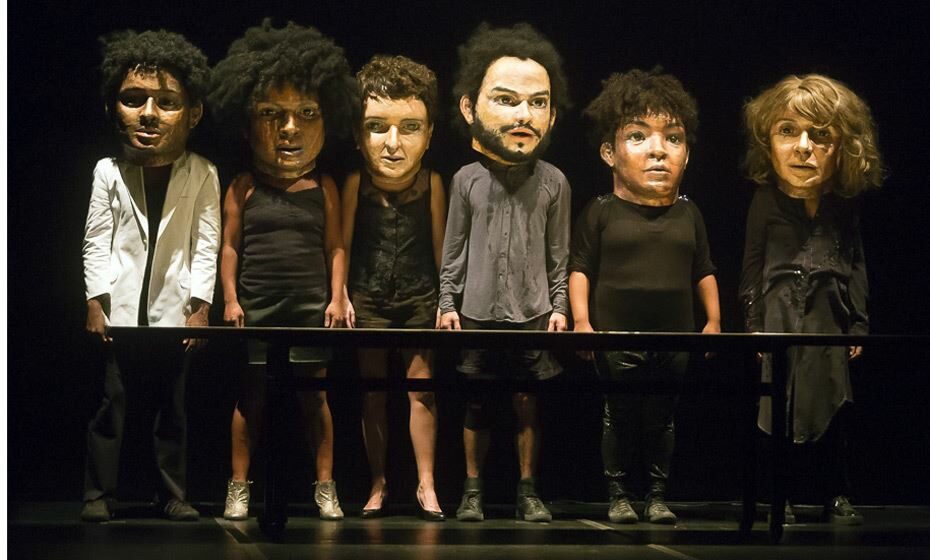
Preto. Photo: Nana Moraes.
In Há mais futuro que passado, Daniele Avila Small (dramaturgy created with Clarice Zarvos and Mariana Barcelos) deconstructs the commonplace documentary language as a truth-bearing enunciation by presenting a lecture-performance in which a (supposed) correspondence between Latin American artists questions the predominance of male and European artists in Art History. Vinicius Arneiro also invests in the language of lecture-performance to stage Gustavo Colombini’s text, which highlights the perpetuation of the term colony, but referring to the tragic events occurred in the Hospital Colônia de Barbacena, in Minas Gerais, in the 1960s and 1970s.
Marco Antonio Rodrigues refers to colonization and contemporaneity when speaking about the contrasting worlds of the aristocracy and the proletariat – a subject matter that refers to present time as well as to the period portrayed in Argentine playwright Mauricio Kartum’s play: the general strike, followed by repression, in Buenos Aires of 1919, when the working class and the politics stood on opposite ends. Leonardo Moreira travels to an even more remote past by appropriating Homer’s Odyssey in a show that combines epic grandeur with intimate closeness, intertwining personal experiences of the inevitably fictionalized actors as they are brought to the surface – and in the face of an audience.
Felipe Hirsch also displays the actor’s autobiographical elements in Democracia, adaptation of Chilean writer Alejandro Zambra’s Facsímile, in which the director investigates the destabilization faced by the Chilean society after the dictatorship. In Tchekhov é um cogumelo, André Guerreiro Lopes also looks back to a dictatorship – the Brazilian one – presenting an interview with theater director José Celso Martinez Corrêa on the process of staging of Tchekhov’s The Three Sisters in the first half of the 1970s, a turbulent time for the country and the for his company, immediately before the director’s departure for exile in Portugal and Mozambique. The show launches the spectator on a sensory journey, symbolized by the image of Guerreiro Lopes himself with a helmet of electrodes.
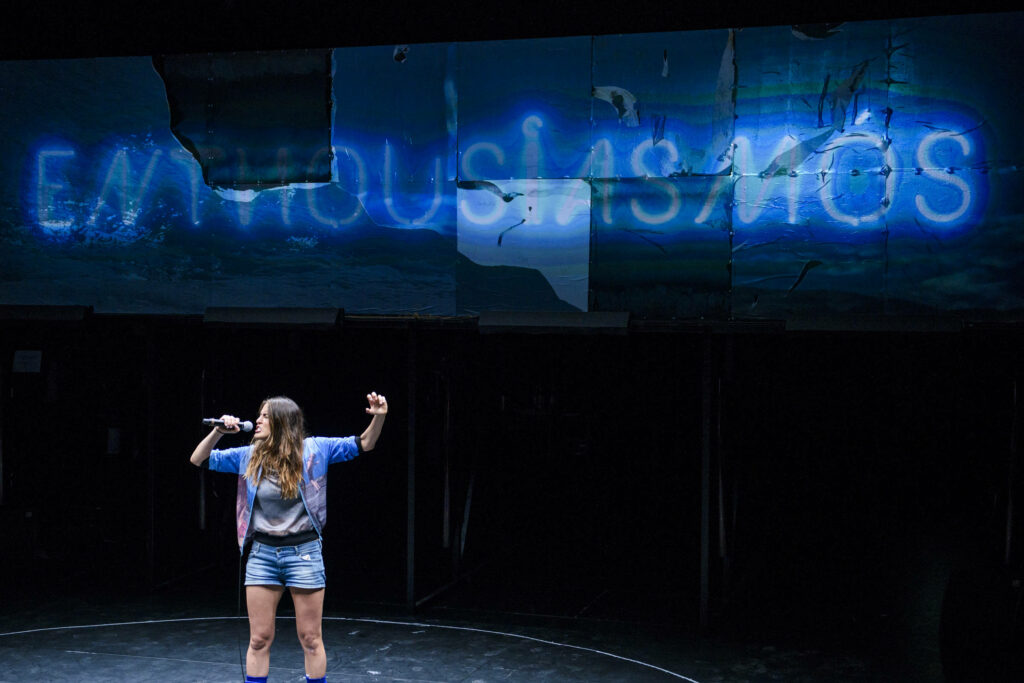
Odisseia. Photo: Elina Giounanli
Navigating through subjective terrain, Grace Passô appears in Vaga carne as a voice that penetrates a body and exerts power over it. Although it does not draw direct bridges with the socio-political context, this solo is profoundly connected to a restless contemporary scene, with it’s far from linear “disjointed” structure, and the powerful presence of the performer.
The shows are part of the Foco Brasil program, which also features in DDD – Days of Dance, in a joint effort from both DDD and FITEI to bring these performances to Portugal together with dance artists from Brazil such as Marcelo Evelin, Lia Rodrigues, and Alice Ripoll.
This post was written by the author in their personal capacity.The opinions expressed in this article are the author’s own and do not reflect the view of The Theatre Times, their staff or collaborators.
This post was written by Daniel Schenker.
The views expressed here belong to the author and do not necessarily reflect our views and opinions.

